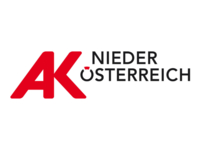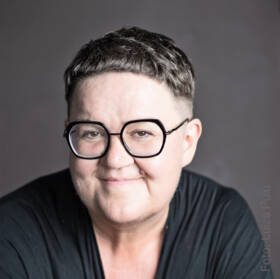Inclusive living, wide-ranging participation and a good life together in the Schneebergland region.
Background
Good and affordable housing, the best possible care, and the possibility of active participation in society for everyone form the basis for a good life. However, rural regions as places of residence face major challenges in these regards. In contrast to urban centres, they lack a wide range of offers to ensure that all members of the population have access to affordable housing and the best possible support regardless of any impairments. Still, inclusion refers to the high-quality co-habitation of all people in all their diversity. It is of particular importance to create the necessary living space – also assisted living, if needed – as it forms the basis for good provision of care, for participation, opportunities in the labour market, a fulfilling social life, and regeneration. All this requires accessibility but also diverse support structures that are developed and borne by politics, citizens (self-care and neighbourly support), business, civil society, professionals, and organisations from the social and healthcare realm.
Project Content
The project at hand is located in the micro-region “Schneebergland” which is part of the "LEADER Region Niederösterreich Süd”. Starting from the strategies and visions of the community Höflein and another five communities, which have already been formulated, the objective is to expand additional possibilities for inclusive living and potential necessary care offers for people with diverse needs and to further develop the region as a high-quality living space.
Goals
The project is aimed at improving the security of supply in the Schneebergland region and to create new and enhanced opportunities for participation for its citizens. The main focus is on people with a need for support, care, and assistance. It is about increasing the citizens‘ quality of life by means of inclusive housing options, the interconnection of various forms of support, and the improvement of inclusion and diversity.
Methods
To this end, the project team implements a participatory process whose content is oriented towards the value code of “Inklusive Gemeinden und Inklusion als Menschenrecht und Haltung” (inclusive communities and inclusion as a human right and attitude). In this code, inclusion is understood as a human right, and full participation is deemed essential for living democracies and sustainable development. A central element is that all people are “part of it” – regardless of gender, age, background, and special needs – and the conviction that we need comprehensive security of supply for all communities. In order to ensure diverse participation for all in the project process itself, our methods rely on the principles and phases of design thinking and citizen participation (citizen science).
Concrete needs and expectations of the various target groups are ascertained, and so are the requirements in terms of physical infrastructure, social services, and neighbourly environment. We come up with and test prototypical solution approaches for strengthening the security of supply. The results are then documented and processed to make them available for other communities and regions looking to start similar projects.
We reach our target groups, firstly, via the involved communities and their communication structures and, secondly, via the participating representatives of different bodies of the municipal administration, the business sector, and social and healthcare organisations. Thirdly, citizens themselves become active for us as multipliers.
Results
The project wants to contribute to the improvement of security of supply in rural communities through comprehensive inclusion. As a consequence, participation – and thus the involvement of all people in communities, regions, organisations, and neighbourhoods in all their diversity and with consideration for individual abilities and restrictions – is of major importance. High priority is given to the creation of a flexible model that takes different needs into account and can be implemented in smaller communities.
The project’s results are compiled in a guideline and discussed both with experts and with the general public at a closing event as well as within the framework of presentations at specialist conferences in Austria and abroad.
You want to know more? Feel free to ask!
Department of Social Sciences
- Gemeinde Höflein an der Hohen Wand


